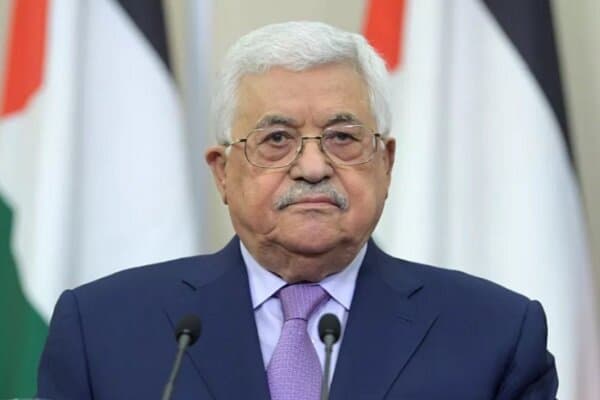Abu Mazen betrayed the Palestinians by suppressing the student movement.
In a series of articles, Al Jazeera news channel investigated the role of the Palestinian Authority in the 6-month war process after the Al-Aqsa storm operation and wrote that the issue of Palestine today is at a crucial stage.
The Americans have declared that they need an updated self-governing organization. In this regard, the former prime minister of the self-governing organization, Mohammad Ashtiyeh, announced that the organization that the Israelis and their allies want is not ours. At the same time, after announcing this issue, he submitted his resignation to Mahmoud Abbas, head of the self-governing organization, because according to his quote, “the future stage and its challenges require a new political and governmental structure that takes into account the new situation in the Gaza Strip.” to give.”
In this way, the self-governing organizations signaled their agreement with the American-European innovation within themselves so that they could play a role in the West’s plan for the day after the war was introduced. In this collection, we will try to review the articles related to the positive and negative actions of the self-governing organizations in the process of the Gaza war:
Unprecedented unity of Palestinians in the battle of “Al-Aqsa storm”
October 7, 2023, the day of the Al-Aqsa storm operation by the Palestinian resistance, is considered a central axis in the history of the Palestinian issue, which caused the Palestinian issue to return to the center of global attention. Perhaps one of the most important analyzes in this context is the role of all Palestinians regardless of ideology and social classes and… they are in this battle.
The role played by all the Palestinian elements, whether inside the Palestinian lands or outside it, in the Battle of al-Aqsa in any way, is very different and interesting compared to the roles they have had in the past periods; Where we see all the Palestinians gathered and standing behind the resistance against the occupation regime’s aggression. Of course, this unheard-of unity approach of the Palestinians showed itself before during the Battle of the Holy Sword in May 2021, and now it has reached its peak during the Battle of Al-Aqsa Storm.
We can see this approach especially in the West Bank; Where the United States had tried hard to neutralize the West Bank and keep it away from the Al-Aqsa storm, and the US Secretary of State Anthony Blinken had repeatedly warned in his frequent visits to the region after the Gaza war that the full entry of the West Bank into the arena Confrontation can change the political equation of war.
The origin of the Palestinian student movement against colonialism and occupation
But the battle of al-Aqsa storm became an excuse to address the role of one of the most important Palestinian organizations in the Palestinian people’s struggle. In the meantime, among the most interesting Palestinian people’s groups that play a significant role in supporting the resistance against the occupation, we can mention the student movements in the West Bank, whose roots go back to the period of British colonialism in Palestine and before the beginning of the Zionist regime’s occupation of the Palestinian lands, i.e. The Nakbat of 1948 comes back with different stages and here we are going to examine them briefly:
The first stage: the establishment of the student movement of Palestinian groups
Before the Nakbat Day in 1948, when the Zionist regime had not yet officially started its occupation of Palestine and Palestine was under British colonial rule, Palestinian students launched a movement to free themselves from British colonialism and confront the Zionist gangs, and in many events, They participated in the 1929 and 1936 revolutions. Speech societies were one of the important student organizations in Palestine at that time, which had a campaigning, awareness-raising, and educational role to confront British colonialism. However the events of 1948 and the Nakba that the occupying regime launched against the Palestinian people with the help of its supporters caused student movements to enter a new phase.
After the Day of Nakbat, student movements were formed in Palestine among the Palestinian refugees and were trying to defend the Palestinian identity, activate the role of Palestinians in front of international forums, and organize the ranks of students in all places to confront the occupation. One of the most important Palestinian student movements at that time was the Palestinian Students Association in Cairo, which was recognized by the Arab League.
The General Union of Palestinian Students, whose roots go back to the period of British colonialism in Palestine, was also one of the most famous student movements that continued its activities even after the occupation of Palestine by the Zionist regime. Finally, the Palestinian Students Union was formed by the gathering of all the movements, and after the 1962 conference, two years before the establishment of the Palestine Liberation Organization, the position of this union was strengthened more than before, and later it became one of the institutions of this organization.
The case of the Palestinian Authority – the role of the Palestinian student movement
After its formation, the General Union of Palestinian Students officially introduced the armed struggle as its mechanism for the liberation of Palestine. This union established military training camps and considered itself a “reserve battalion” in the Palestinian revolution. It is important to note that most Palestinian groups were founded by leaders of student movements after they graduated from universities, including the Fatah movement. This movement was founded by former leaders of student movements in the Palestinian Students Association and the General Union of Students, such as Yasser Arafat, Salah Khalaf, Tissir Qala, Farouk al-Qadoumi, and Salam Abdul Hamid. The Popular Front for the Liberation of Palestine was also founded by the leaders of student movements.

